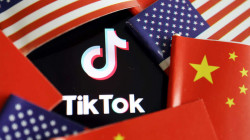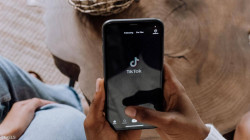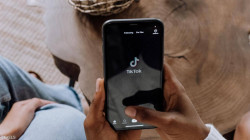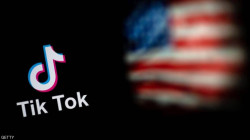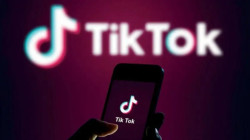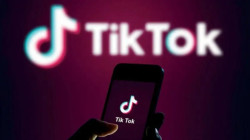TikTok in Iraq: A battle between entertainment, ethics, and enforcement
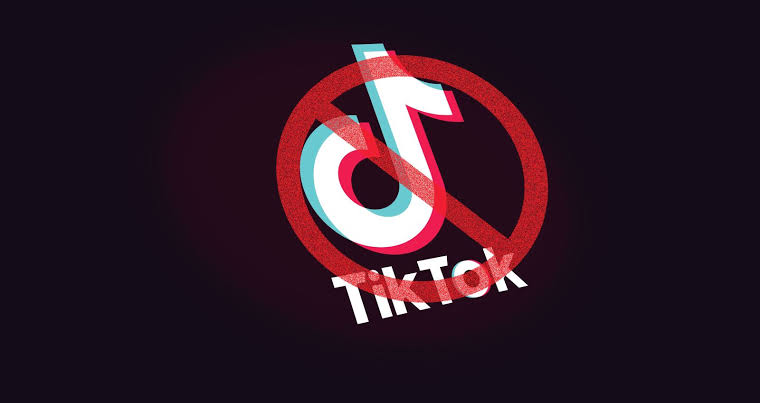
Shafaq News/ In a digital age where social media platforms dominate the online landscape, Iraq finds itself at the center of a heated debate over the future of TikTok.
The popular video-sharing App has captured the attention of millions worldwide, offering a platform for creativity, entertainment, and social interaction. However, concerns over content, influence, and cultural impact have prompted Iraqi authorities to contemplate a ban on TikTok within the country.
The decision has sparked discussions about freedom of expression, digital censorship, and the role of social media in shaping societal norms.
Global Bans on TikTok App
Many countries are concerned about TikTok's security due to its ties to China. These nations have taken steps to ban TikTok from federal government devices amid growing worries about the privacy and security risks associated with the Chinese-owned video-sharing App.
Here are the countries and regions that have announced or implemented partial or total bans on the TikTok app:
• Australia: Banned TikTok from all federal government-owned devices due to security concerns.
• Estonia: TikTok banned from smartphones issued by the state to public officials.
• France: The installation and use of "recreational" apps like TikTok are banned on work phones of civil servants.
• United Kingdom: Immediate ban of TikTok on government official devices for cybersecurity reasons.
• European Union: TikTok banned on staff devices across EU institutions citing cybersecurity concerns.
• Netherlands: Discouraged use of apps from countries with aggressive cyber-programs on government phones.
• Norway: Banned TikTok from work devices due to security risks and potential espionage.
• Belgium: Banned TikTok from federal government devices for at least six months over cybersecurity and privacy concerns.
• Denmark: Banned TikTok on official units as a cybersecurity measure due to espionage risks.
• United States: Legislation passed in the House requiring divestment from TikTok's parent company or face a nationwide ban.
• Canada: Banned TikTok from all government-issued devices and future downloads due to privacy and security risks.
• New Zealand: TikTok banned from government lawmakers' phones, affecting about 500 people in the parliamentary complex.
• India: TikTok and other Chinese apps are permanently banned due to privacy and security concerns.
• Taiwan: Public sector ban on TikTok due to national security risks.
• Pakistan: TikTok was temporarily banned multiple times, citing concerns about immoral content.
• Afghanistan: TikTok banned by Taliban leadership to protect youths from misleading content.
These bans stem from various concerns, including cybersecurity risks, privacy issues, potential espionage, and promoting immoral content.
Concerns Over TikTok's Security and Privacy
Experts highlight the potential risks of sensitive information exposure, particularly on government devices, prompting these countries to take preventive measures against using TikTok.
TikTok is owned by the Chinese technology company Bytedance, but it maintains that it operates independently and does not share user data with the Chinese government.
One major worry of countries is related to security and privacy, with apprehensions about the Chinese government's potential access to user data, given TikTok's ownership by ByteDance, a Chinese company. This raises concerns about national security and the possible misuse of user information.
Censorship is another concern, particularly for countries with histories of government censorship, fearing that TikTok could be used to control content or promote specific viewpoints.
Child safety is also a significant issue, with worries about the spread of inappropriate content, cyberbullying, and challenges that could be harmful to young users.
Geopolitical tensions also play a role, as some countries view restricting TikTok as a way to limit Chinese influence amid ongoing tensions.
Additionally, concerns about extensive data tracking and potential data misuse for targeted advertising or other purposes contribute to the decision to restrict the platform.
While TikTok asserts that user data is stored outside of China and complies with local regulations, the lack of transparency and its ties to China continue to fuel suspicion in some countries.
Iraq's Strides Against "Offensive" Content
For three years, there were widespread calls in Iraq to ban the "TikTok" App in the country; however, the Ministry of Communications clarified at that time that such action required a "special governmental decision."
In 2023, Iraqi authorities have been actively conducting extensive campaigns to eliminate what they classify as "producers of offensive content" on social media platforms.
In this context, the Federal Supreme Court of Iraq issued a decision on March 14, 2024, to block websites, internet networks, social media platforms, and electronic communication applications that include "dissemination of immoral, indecent, and offensive content violating modesty, blasphemy against divine entities, disrespect towards prophets and religious symbols, defamation of religions and sects, promotion of immorality, debauchery, prostitution, sexual deviance, and harm towards others."
Also this month, the Iraqi Minister of Communications, Hayam al-Yasiri, revealed a request submitted to the Cabinet to block the TikTok application, citing its "negative impact on Iraq's social cohesion."
Al-Yasiri expressed concerns about TikTok's role in "eroding Iraq's social fabric" and emphasized the "lack of educational value in the app," labeling it as "purely entertainment-focused."
During a press conference, Al-Yasiri clarified that the decision to block TikTok requires action from the Parliament or the Cabinet, as it exceeds the Ministry of Communications authority.
The TikTok app boasts approximately 31.9 million users in Iraq, up from 23.88 million users last year, constituting around 88% of the country's 36.2 million internet users. This user base surpasses all other social media platforms, such as Facebook, Instagram, and YouTube, in a country with a population of 43.5 million.
TikTok Controversy in Iraq
Al-Yasiri's announcement of blocking the application has sparked debate among supporters and opponents, with some arguing that entertainment is needed and that websites and platforms cannot be shut down, questioning whether a ban on other applications will follow it. Others believe the application spreads adverse effects by broadcasting clips that offend public decency.
In this context, TikToker Ali Taki said, "If the purpose of blocking TikTok is to limit offensive content from some content creators, then I am in favor of it, although I am a content creator on social media platforms and I am affected by the blocking of this application."
During his interview with Shafaq News agency, Taki noted, "However, content creators may resort to using other platforms, so this decision will not be a fundamental solution to what we see from some content creators on TikTok."
On his part, Dr. Fadel Al-Ghraoui, the head of the Strategic Center for Human Rights in Iraq, stated that "freedom of expression is considered one of the fundamental rights of citizens in all legislations, constitutions, international conventions, and treaties, and these freedoms are guaranteed as they represent a fundamental right that should be available to all humans."
Al-Ghraoui clarified to Shafaq News agency, "However, these freedoms should not be excessive and should not violate public decency, order, and norms. Although social media platforms are intended to serve humans and have many positives, some have started to exceed public decency and norms, especially in using TikTok in Iraq."
"A total ban on the App is incorrect; TikTok should be regulated in Iraq as other countries did. This regulation will help trim down what is published that does not align with public decency and norms. Therefore, the government's responsible for providing a suitable, safe, and protected environment for exercising this right without banning it."
However, social researcher Douaa Ahmed Thajeel believes that "a permanent ban on TikTok will have a positive impact in curbing some apps and setting procedures and controls for other applications."
Thajeel explained to Shafaq News that most of TikTok's content is "not constructive but somewhat degrading, especially those that have been circulating recently."
"Some individuals have left their jobs and turned to TikTok to earn money from it, and as a result, some children have committed crimes imitating what they saw on this application, as happened in Basra, in addition to numerous cases of blackmail because of it."
She called for the necessity of implementing the ban decision to "protect Iraqi families from the scenes published on this App, which contribute to the corruption of society. As for those who argue that content creators will turn to other applications, they cannot publish the same content on Instagram and Facebook, as each platform has its standards. They will have learned their lesson and will set their own guidelines for publishing."
